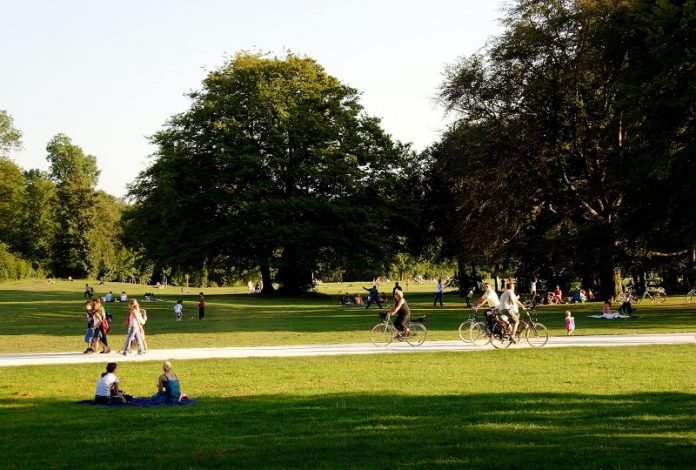
In a new study, scientists found one-third of premature deaths attributable to higher temperatures in European cities during the summer of 2015 could have been prevented by increasing urban tree cover to 30%.
The study also found that tree cover reduced urban temperatures by an average of 0.4 degrees during the summer.
Urban environments record higher temperatures than the surrounding countryside generally referred to as “urban heat islands.”
This temperature difference is caused by human modification of landscapes, such as the removal of vegetation, the presence of asphalt, and the use of building materials that absorb and trap heat.
As emissions continue to exacerbate climate change and global heating, increased temperatures in cities are predicted to become more intense, resulting in an increasingly urgent need for cities to adapt to improve health outcomes.
In the study, the team estimated mortality rates of residents over 20 years old in 93 European cities between June and August 2015, accounting for 57 million inhabitants in total.
Death data from this period were analyzed with daily average city temperatures in two modeling scenarios: the first comparing the city temperature without urban heat islands to city temperature with urban heat islands, and the second simulating the temperature reduction as a consequence of increasing the tree cover to 30%.
Exposure-response functions were used to estimate the number of deaths attributable to urban heat as well as the number of deaths that could be prevented by increasing the tree cover.
The population-weighted city average daily temperature difference between cities and the countryside from June—August 2015 was 1.5 degrees warmer than the surrounding countryside, with the maximum temperature difference measured at 4.1 degrees hotter in Cluj-Napoca, Romania.
Across all cities, 75% of the total population lived in areas with an average summer city temperature difference greater than one degree, and 20% with an average summer temperature difference greater than two degrees, compared to the surrounding countryside.
In total, 6,700 premature deaths could be attributed to hotter urban temperatures during the summer months, accounting for 4.3% of summer mortality and 1.8% of year-round mortality.
One in three of these deaths (2,644 total) could have been prevented by increasing tree cover by up to 30% and therefore reducing temperatures.
This corresponds to 39.5% of all deaths attributable to hotter urban temperatures, 1.8% of all summer deaths, and 0.4% of year-round deaths.
The results of this study support the idea that urban trees provide substantial public health and environmental benefits.
If you care about health please read studies about a new cause of artery hardening and kidney disease, and too many older Americans are still taking a daily aspirin.
For more information about health, please see recent studies about sweeteners in foods and drinks linked to anxiety, and results showing this readily available and inexpensive drug may help treat COVID-19.
The study was conducted by Tamar Iungman et al and published in The Lancet.
Copyright © 2023 Knowridge Science Report. All rights reserved.



